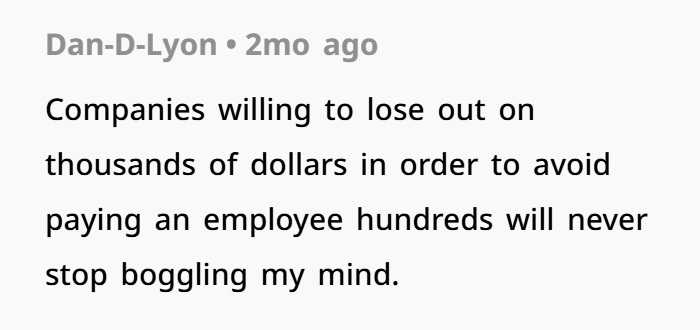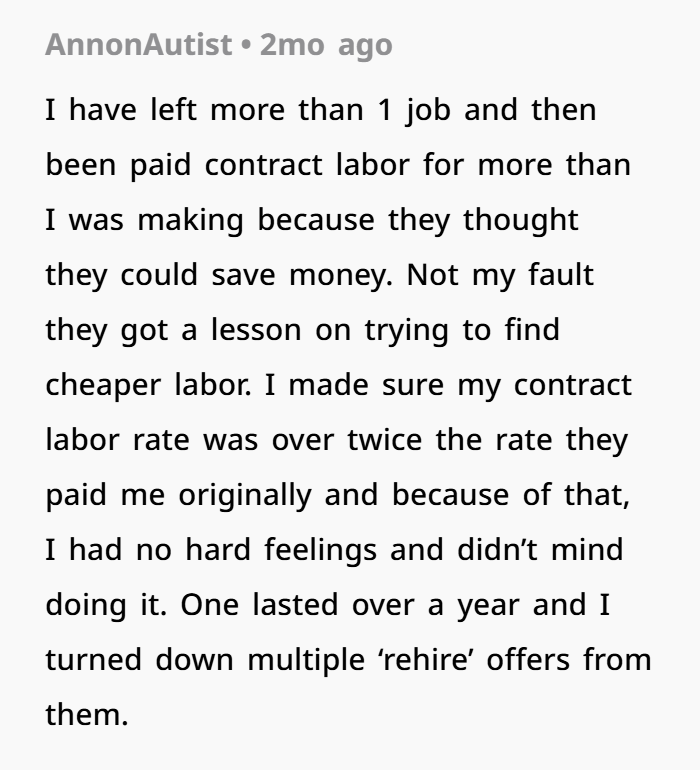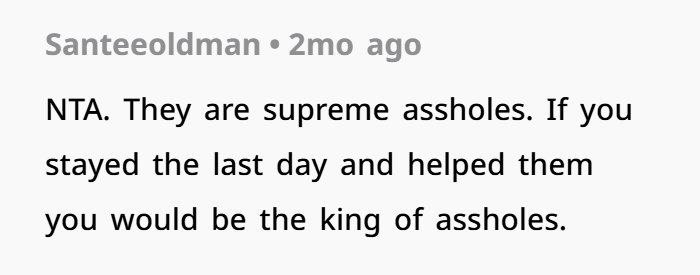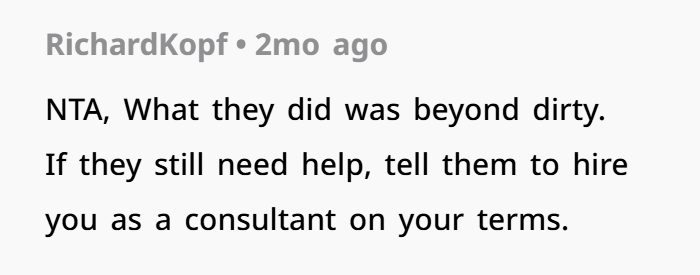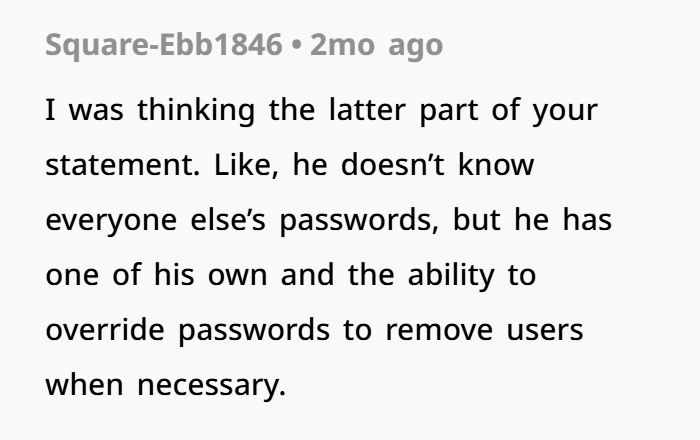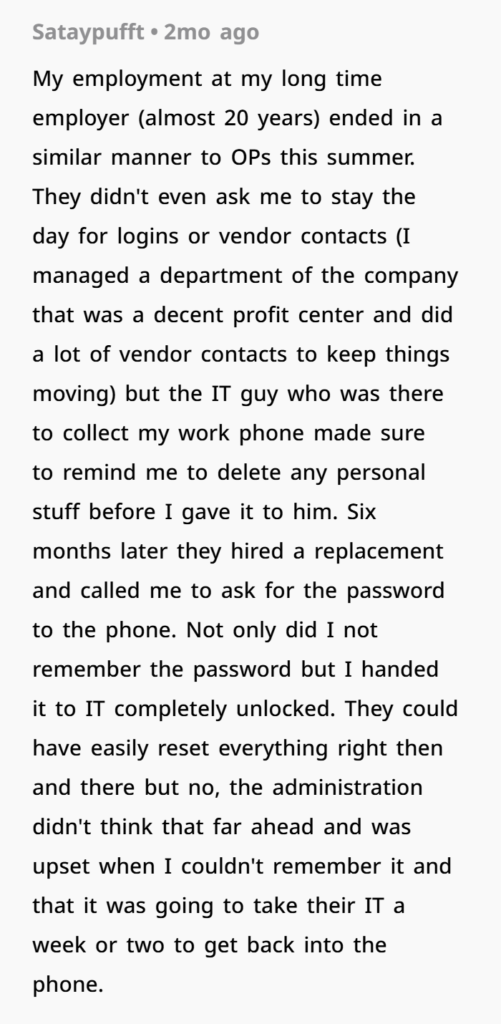AITAH for Refusing to Share Passwords After Being Laid Off Without Notice?
In a classic tale of corporate betrayal, an employee stayed late into the night to finish an urgent project—only to be blindsided by a layoff the very next morning. With no warning, no severance, and no professional courtesy, management demanded not only immediate departure but also full cooperation in transferring critical passwords and system access.
Faced with an unjust situation, the employee refused, offering a simple counter: pay a two-week severance or receive no assistance. Management declined, and the employee walked, soon finding new employment through industry contacts. The situation raises a vital question about employee rights, ethical retaliation, and the often blurred lines between professional responsibility and personal dignity after sudden terminations.
Some superiors don’t have much empathy for the people they let go

For this employee, being let go came completely out of the blue
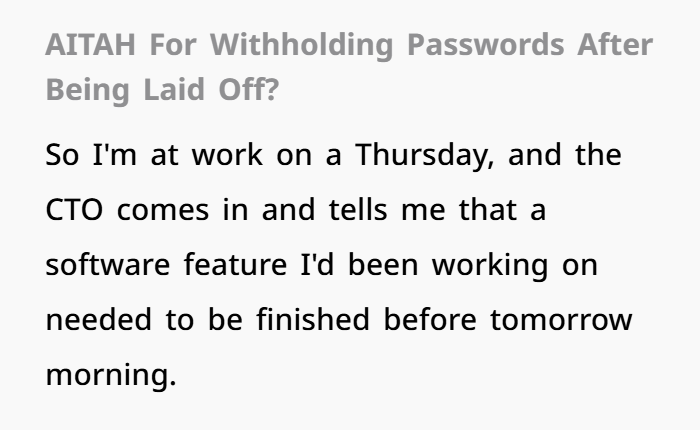
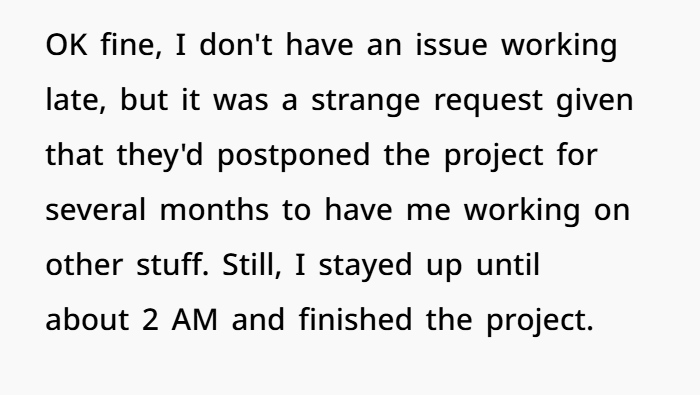
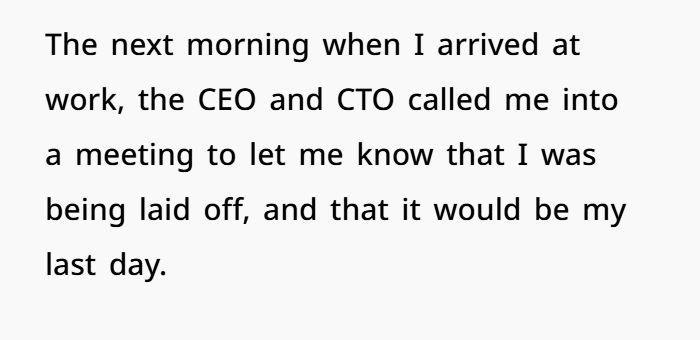

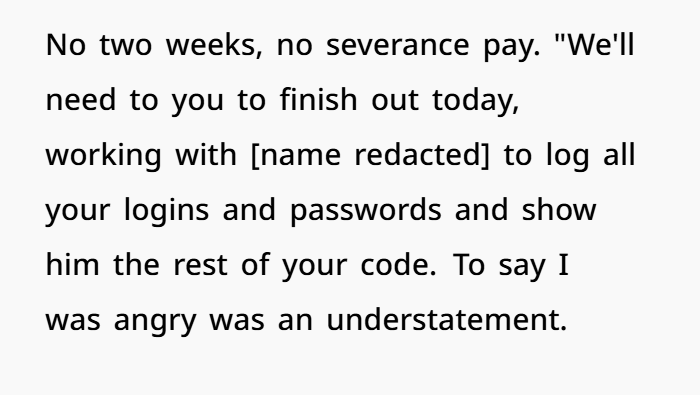

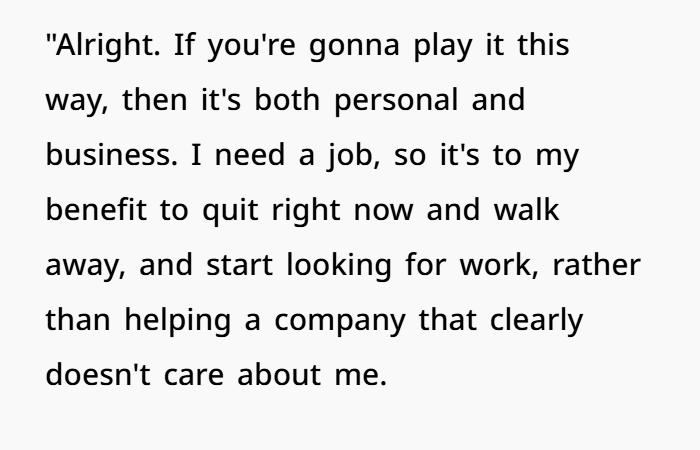
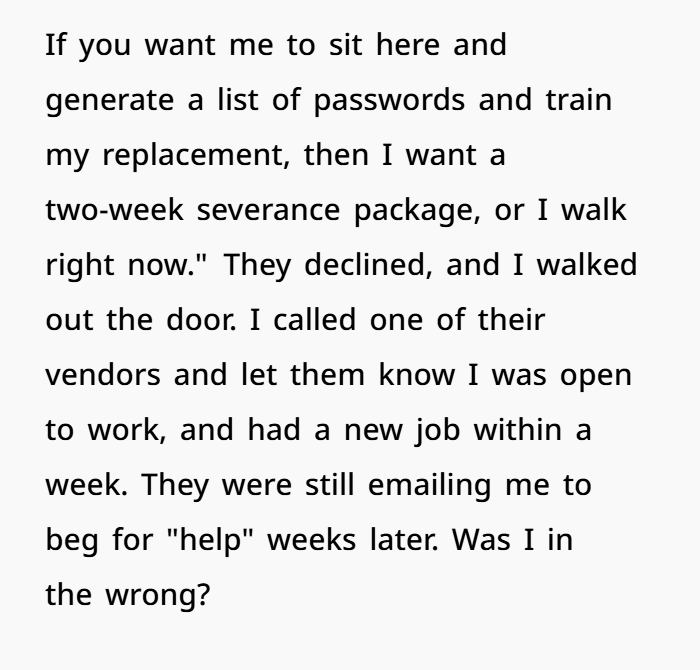
Legally speaking, employees who are terminated without notice—especially without a severance package—are generally not obligated to assist in post-termination transition work unless prior contractual agreements state otherwise (SHRM). In the absence of a signed agreement or exit contract, demanding that an employee hand over passwords or train a replacement is an uncompensated labor request, which can have serious legal ramifications.

In the tech industry, control over intellectual property, access credentials, and proprietary information becomes a major concern during layoffs. According to the International Association of Privacy Professionals (IAPP), best practices dictate that companies should have proper offboarding protocols in place, including access audits and systematic transitions, rather than relying on abruptly laid-off employees under emotional stress.
Ethically, retaliation—such as withholding passwords—can be a gray area. While it may feel justifiable given the mistreatment, legal experts advise caution. Actions perceived as “withholding company property” could expose former employees to civil lawsuits or accusations of data sabotage, depending on jurisdiction (FindLaw). However, because the employee offered a clear ultimatum—severance in exchange for cooperation—without engaging in any destructive actions, the move was strategic rather than malicious.
From a business ethics standpoint, companies that abruptly terminate employees without support risk long-term reputational damage. Studies from Gallup show that treating exiting employees with dignity leads to stronger alumni networks and preserves industry reputation, crucial for talent acquisition in competitive fields.
Lastly, this case highlights the increasing importance of professional boundaries during layoffs. Employment lawyers recommend preparing a personal offboarding checklist that protects an employee’s digital identity while ensuring compliance to avoid legal entanglements. High CPC keywords like “employee offboarding best practices” and “how to protect yourself after a layoff” attract strong traffic because workers are increasingly aware of their vulnerabilities in sudden terminations.
In this case, refusing uncompensated labor after a layoff, especially when framed as a fair exchange (severance for cooperation), reflects a growing understanding among employees: know your rights, and set your price.
Fellow netizens sided with the employee, they didn’t think the person was in the wrong here

